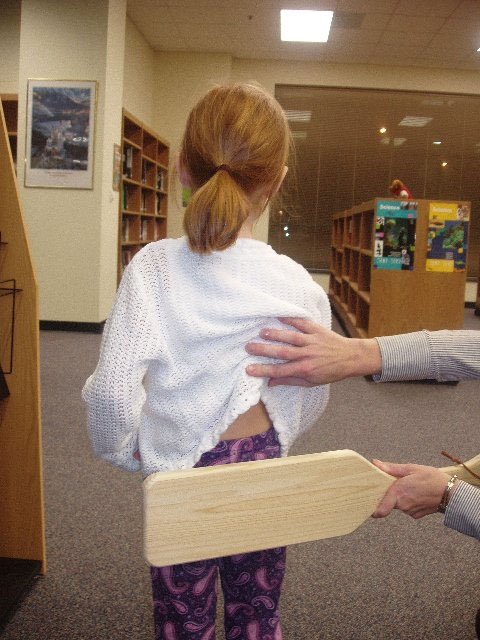It's time to retire the paddle in North Carolina. N.C. lawmakers should follow Union County's lead Tuesday and ban corporal punishment statewide.
In 2007, it is ridiculous to even be having a debate over whether educators should be allowed to hit students as punishment. But in a few counties in North Carolina, and some states -- primarily in the South -- this antiquated and largely ineffective discipline tool is still around.
In Union County, school board members have spent an inordinate amount of time haggling over it. Tuesday's 6-3 vote to ban it was welcome. But it came only after school board members, parents and educators had jostled over the issue for years. Previous boards couldn't reach a consensus, so the superintendent had established an agreement with principals not to use the punishment. With new school board members and a new superintendent the issue was bound to come up again, and it did with Tuesday's vote.
But this matter should not be left up to the politics of individual counties -- from school board election to election, superintendent to superintendent. The state should settle the matter. Lawmakers should say "no" to corporal punishment.
Current N.C. law has specific guidelines on using corporal punishment if counties choose it. It can not be administered in the classroom when other students are present. Only principals, teachers and certain others can administer it. Students must be informed beforehand what conduct will result in corporal punishment.
But these rules can't mitigate the basic problems. Research shows paddling can and often does result in injuries to students. Data also show it is disproportionately used on poor children, minorities, students with disabilities and boys. And educators attest that as a deterrent to bad behavior, paddling doesn't work. The same children are punished over and over. Schools using it often have poorer academic achievement, more truancy, more vandalism and higher dropout rates.
As important, corporal punishment sends exactly the wrong message to students -- that violence is an acceptable response to conflict.
Industrialized countries worldwide have prohibited corporal punishment in public schools for more than a century. Charlotte-Mecklenburg Schools banned it more than a decade ago. It's time for arguments over it in other school systems in this state to cease. North Carolina should ban corporal punishment statewide.
| 

